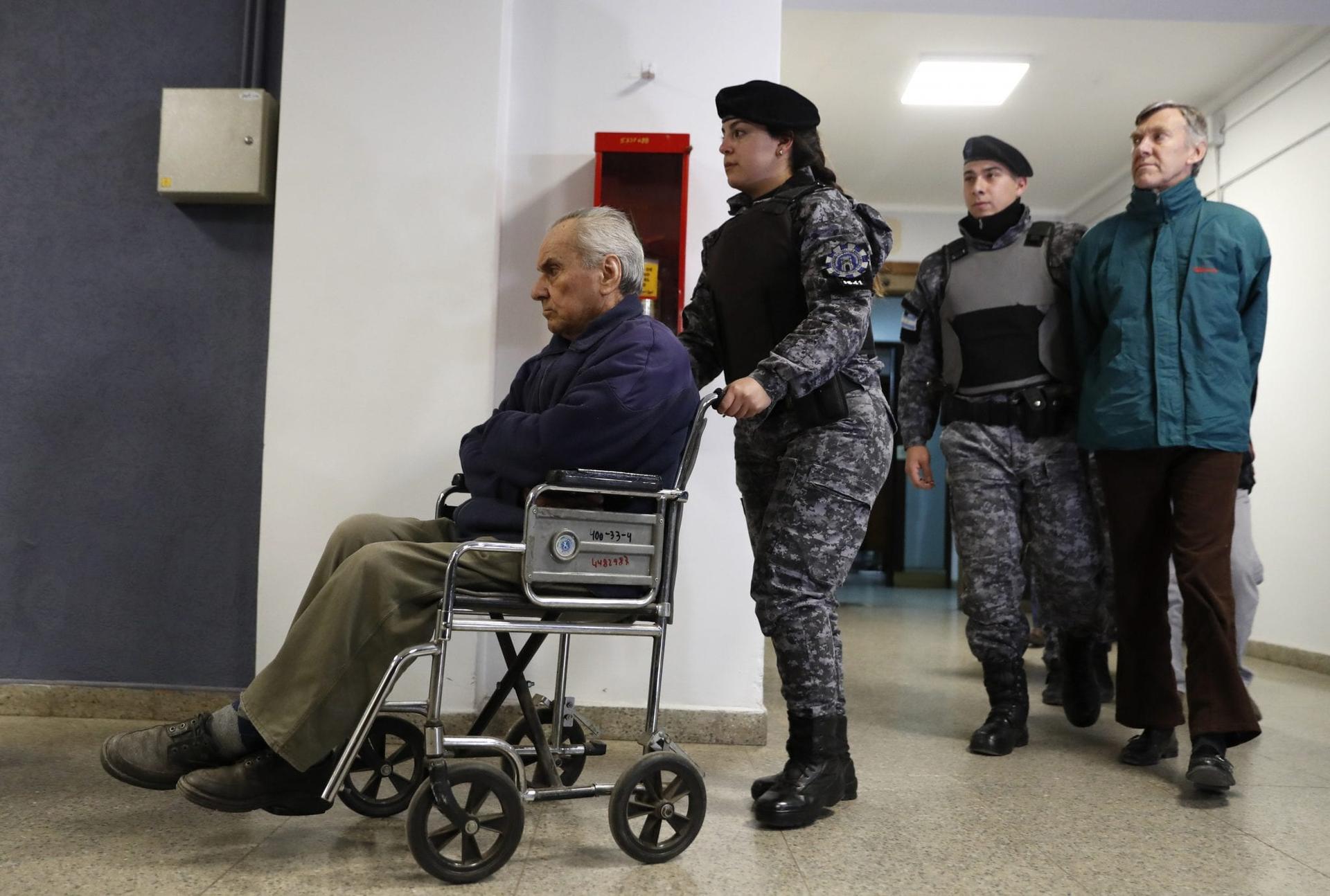BUENOS AIRES, Argentina — Pope Francis’s homeland faces a complicated week of reckoning with the sex abuse scandal that has plagued the Catholic Church.
Judges were scheduled to rule Monday in the case of two priests who face up to 50 years in prison for alleged sexual abuse of deaf children at a Catholic-run school — a sister institution to a school that suffered a similar scandal in Italy.
Meanwhile, a bishop once close to the pope announced he would arrive back in the country Tuesday to respond to prosecutor’s allegations of sex abuse.
Both cases have raised questions about how quickly Francis acted to deal with the complaints.
A three-judge panel in the northwestern province of Mendoza was set to rule on charges against Father Nicola Corradi, an 83-year-old Italian, and Father Horacio Corbacho, a 59-year-old Argentine, who worked at the Antonio Provolo Institute for Deaf and Hearing Impaired Children in the Mendoza municipality of Lujan de Cuyo. Both were arrested in 2016.
The two men — along with gardener Armando Gómez — are accused of 25 acts of aggravated sexual abuse, abuse and corruption of minors, between 2004 and 2016. The victims are 10 former students.
The allegations shocked Argentines — as did the revelation that Corradi had been previously accused of similar offences at the Antonio Provolo Institute in Verona, Italy, but was never charged.
The Vatican had known about Corradi since at least 2009, when the Italian Provolo students went public with tales of abuse and named names. The Vatican ordered an investigation and sanctioned four accused priests, but Corradi apparently never was sanctioned in Italy.
The Zanchetta case is particularly grave for Francis, given the pope was aware of allegations of inappropriate sexual behavior by his onetime protégé in 2015, two years before Zanchetta resigned as bishop of the Argentine bishopric of Oran.
Francis allowed him to step down in 2017 for “health reasons,” but then named him to a senior Vatican administration position a few months later. The pope has said he gave Zanchetta the benefit of the doubt after he claimed his phone had been hacked with nude images.
Prosecutors are seeking 45-year sentences for each of the two priests in the Provolo Institute case and 22 years for the gardener. The defendants, who pleaded innocence, said the students’ stories are improbable ad asked that the trial be annulled.
Corradi, who was the director of the institute, has been under house arrest because of his age, while Corbacho and Gómez were being held in a jail in the provincial capital of Mendoza.
Former students, young men and women, testified that the priests touched and sometimes raped them in their dormitories and school bathrooms. They also said they were forced to look at pornographic images. They said they were warned to keep quiet.
Investigators found records of complaints made by parents that weren’t followed up, photographs of a naked girl on Corbacho’s computer and chains he allegedly used to subdue one girl.
Last year, Jorge Bordón, an employee at the now-closed school, pleaded guilty and was sentenced to 10 years in prison for rape, sexual touching and corrupting minors.
The former students are also demanding Francis strip the alleged abusers of their status as priests.
In 2017, the Vatican sent two Argentine priests to investigate what happened in Mendoza. Dante Simon, a judicial vicar, told The Associated Press that the “horrible” allegations are “more than plausible.” He said the pontiff expressed his sadness and told him that “he was very worried about this situation.”
In a report submitted to the Vatican that June, Simon requested the maximum canonical penalty for Corradi and Corbacho, that they be made to “resign directly by the Holy Father.” His report must be reviewed by the Congregation for the Doctrine of the Faith.
Many in Argentina have asked why Francis did not remove Corradi as the authority at the Mendoza school once he learned of the allegations in Verona.
Corradi’s name appeared publicly in 2009, when 67 people said they were abused at the Verona institute by 24 priests, lay people and religious brothers, and specifically said that Corradi was in Argentina.
In 2012, the diocese of Verona asked for forgiveness from the victims and sanctioned 24 of the accused, although Corradi was not among them. None of the cases ever went to trial.
Corradi’s name appeared again in 2014 in a letter written to the pope that reiterated the potential danger he posed in Mendoza.
Meanwhile, Zanchetta’s canon law attorney, Javier Belda Iniesta, issued a statement Saturday saying the bishop would return to Argentina, apparently from the Vatican, on Tuesday and would fully cooperate with authorities.
A prosecutor accuses Zanchetta of “aggravated continuous sexual abuse” of two seminarians, charges that carry a maximum penalty of 10 years in prison. He has denied the charges, which don’t involve minors.
The Vatican insists the first accusation of actual sex abuse was only lodged against Zanchetta in late 2018. But AP and the newspaper Tribune of Salta have reported that documents and testimony from diocesan officials raised credible allegations of inappropriate sexual misconduct well before then.
Crux is dedicated to smart, wired and independent reporting on the Vatican and worldwide Catholic Church. That kind of reporting doesn’t come cheap, and we need your support. You can help Crux by giving a small amount monthly, or with a onetime gift. Please remember, Crux is a for-profit organization, so contributions are not tax-deductible.












